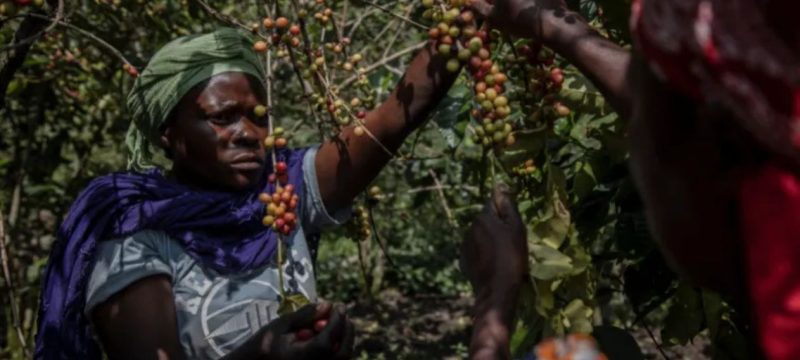In the green highlands of eastern Democratic Republic of Congo (DRC), coffee farmers are facing a new crisis. Years of progress in reviving the once-thriving coffee industry are now under threat as conflict worsens. Many farmers are unable to reach their fields, leaving crops to rot and wither.
For decades, eastern Congo has been scarred by violence. Armed groups continue to battle for territory, leaving local communities caught in the middle. This renewed fighting is disrupting farming activities and slowing economic recovery in one of the world’s poorest regions.
Coffee farming is vital to many families in eastern Congo. It provides both income and food security. In recent years, international aid groups and cooperatives had supported farmers with new seeds, training, and access to global markets. These efforts showed positive results. Farmers began exporting higher-quality beans, and Congolese coffee started gaining attention abroad.
But the latest surge in violence has reversed much of that progress. Farmers say they cannot safely visit their plantations. Roads are blocked, markets are shut, and transport costs have risen sharply. Without access to their land, families lose both harvests and income.
Local reports say many farmers have abandoned their crops. Coffee cherries, which must be harvested at the right time, are left on the trees until they rot. Some farmers who attempt to work risk being attacked or displaced. For others, fleeing their homes has been the only option.
The economic toll is severe. Coffee is one of Congo’s most important cash crops. It was once the country’s top export, but years of war and neglect damaged the industry. Recent programs had started to bring back international buyers. The current insecurity, however, threatens to drive them away again.
Experts warn that if the conflict continues, international companies may shift their interest elsewhere. Neighboring countries such as Rwanda and Uganda already have stronger reputations for quality coffee and more stable conditions. Losing buyers would mean a major setback for Congolese farmers.
Farmers also worry about food shortages. Many rely on coffee profits to purchase essentials like rice, beans, and oil. With little to sell, their purchasing power falls. Aid groups have reported rising hunger in some parts of eastern Congo, adding to the humanitarian crisis.
International organizations are calling for peace and stability to protect farming communities. They stress that agriculture can play a key role in rebuilding Congo’s economy if given the chance. Some groups continue to provide support, but insecurity limits their reach.
Despite the risks, many farmers remain determined. Coffee has long been part of the region’s identity, and they do not want to lose it. Farmers hope that international attention will help bring stability and protect their livelihoods.
The situation highlights the link between conflict and economic development. Without security, even the best farming projects struggle to succeed. Analysts say lasting peace in eastern Congo is essential for the coffee industry to survive.
For now, the outlook is uncertain. Farmers are anxious that years of hard work will be undone. The cherries falling from untended trees serve as a painful reminder of opportunities lost. Until peace returns, eastern Congo’s coffee dream remains in jeopardy.
For more on global media rights and the full findings, read the latest news on : Turkish court delays ruling on opposition leader







